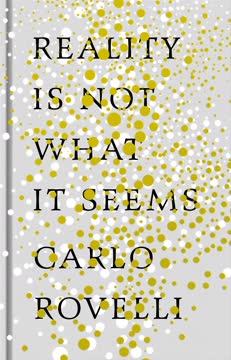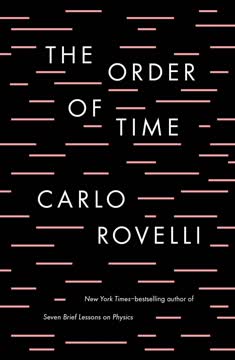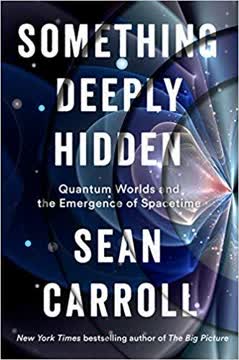نکات کلیدی
1. آگاهی: واقعیت بنیادی که نمیتوانیم نادیده بگیریم
آگاهی برای آنچه که ما به عنوان انسان هستیم، بنیادی است.
تعریف آگاهی. آگاهی شامل تجربیات درونی و ذهنی ما، از جمله احساسات، عواطف و افکار است. این جوهره هویت شخصی ما و منبع ارزش در وجود ماست. برخلاف دیگر جنبههای واقعیت، آگاهی به طور مستقیم از طریق تجربه فوری به ما شناخته میشود.
اهمیت آگاهی. آگاهی نقش حیاتی در:
- هویت شخصی و بقا
- تجربیات معنادار و کیفیت زندگی
- تنها دانش قطعی ما از واقعیت
در حالی که میتوانیم وجود جهان خارجی را زیر سؤال ببریم، نمیتوانیم آگاهی خود را زیر سؤال ببریم. این امر آگاهی را به نقطه شروع بنیادی برای درک واقعیت تبدیل میکند.
2. محدودیتهای علم فیزیکی در توضیح آگاهی
علم فیزیکی چیز شگفتانگیزی است. و این تنها ممکن بود زیرا گالیله به ما آموخت که چگونه به ماده به صورت ریاضی فکر کنیم. با این حال، فلسفه طبیعت گالیله نیز مشکلات عمیقی را به ما به ارث گذاشته است.
میراث گالیله. رویکرد گالیله به علم، که بر جنبههای کمی واقعیت تمرکز دارد، بسیار موفق بوده است. اما این موفقیت هزینهای داشته است:
- حذف جنبههای کیفی واقعیت، از جمله آگاهی
- ایجاد فاصلهای بین جهان عینی علم و جهان ذهنی تجربه
فاصله توضیحی. علم فیزیکی با محدودیتهای بنیادی در توضیح آگاهی مواجه است:
- با ویژگیهای عینی و کمی سروکار دارد
- آگاهی ذاتاً ذهنی و کیفی است
- هیچ راه واضحی برای پر کردن این فاصله با استفاده از روشهای علمی کنونی وجود ندارد
این محدودیت نیاز به رویکرد جدیدی برای درک آگاهی را که فراتر از پارادایم کنونی علم فیزیکی باشد، نشان میدهد.
3. دوگانهگرایی در مقابل مادیگرایی: کاستیهای رویکردهای سنتی
اگر مادیگرایی درست باشد، پس احساسات با حالتهای مغزی یکسان هستند.
مشکلات دوگانهگرایی:
- دشواری در توضیح تعامل ذهن و بدن
- کمبود شواهد تجربی برای ذهنهای غیرمادی
- تضاد با درک علمی از مغز
چالشهای مادیگرایی:
- ناتوانی در توضیح کیفیتهای ذهنی تجربه
- کاهش آگاهی به حالتهای مغزی جوهره آن را در بر نمیگیرد
- عدم انسجام منطقی در توضیح تجربه ذهنی از طریق حقایق عینی
هر دو رویکرد نتوانستهاند توضیح رضایتبخشی از آگاهی ارائه دهند و نیاز به یک دیدگاه جایگزین که بتواند فاصله بین جسم و ذهن را پر کند، را نشان میدهند.
4. پانسایکسیسم: راه سومی برای درک آگاهی
پانسایکسیسم دیدگاهی است که آگاهی را ویژگی بنیادی و فراگیر واقعیت فیزیکی میداند.
تعریف پانسایکسیسم. پانسایکسیسم پیشنهاد میکند که:
- آگاهی جنبهای اساسی از واقعیت است که در تمام ماده وجود دارد
- آگاهی پیچیده (مانند تجربه انسانی) از اشکال سادهتر ناشی میشود
- این نیست که همه چیز آگاه است، بلکه همه چیز از موجودات آگاه تشکیل شده است
مزایای پانسایکسیسم:
- از مشکلات دوگانهگرایی و مادیگرایی اجتناب میکند
- دیدگاهی یکپارچه از واقعیت ارائه میدهد که شامل آگاهی است
- با درک علمی سازگار است و در عین حال تجربه ذهنی را در نظر میگیرد
پانسایکسیسم یک نقطه میانه بین کاهشگرایی مادی و جدایی دوگانهگرایی ارائه میدهد و میتواند مشکل سخت آگاهی را حل کند.
5. بینش راسل-ادینگتون: آگاهی به عنوان ذات درونی ماده
فیزیک هیچ چیز درباره ذات درونی ماده به ما نمیگوید.
محدودیت فیزیک. علم فیزیکی رفتار ماده را توصیف میکند اما ذات درونی آن را نه. این امر فاصلهای در درک ما از واقعیت ایجاد میکند.
آگاهی به عنوان قطعه گمشده. راسل و ادینگتون پیشنهاد کردند که:
- آگاهی میتواند ذات درونی ماده باشد
- این میتواند هم رفتار ماده (که توسط فیزیک توصیف میشود) و هم تجربه ذهنی ما را توضیح دهد
- این یک راه برای ادغام آگاهی در جهانبینی علمی ما فراهم میکند
این رویکرد مشکل آگاهی را به گونهای معکوس میکند و آن را به بنیاد درک ما از واقعیت تبدیل میکند به جای اینکه یک پدیده غیرقابل توضیح باشد.
6. مشکل ترکیب: چالشها برای پانسایکسیسم
چگونه میتوان از موجودات آگاه کوچک، مانند ذرات بنیادی، به موجودات آگاه بزرگ، مانند مغزهای انسانی، رسید؟
چالش اصلی. مشکل ترکیب میپرسد که چگونه اشکال ساده آگاهی در سطح میکرو ترکیب میشوند تا آگاهی پیچیده در سطح ماکرو را تشکیل دهند.
رویکردهای ممکن:
- پانسایکسیسم کاهشگرا: سعی میکند آگاهی پیچیده را به اشکال سادهتر توضیح دهد
- پانسایکسیسم ظهورگرا: اصول بنیادی جدیدی را پیشنهاد میکند که حاکم بر ظهور آگاهی پیچیده است
در حالی که مشکل ترکیب چالشی مهم برای پانسایکسیسم است، اما به طور قابل توجهی قابل حلتر از مشکلاتی است که دوگانهگرایی و مادیگرایی با آن مواجهاند.
7. درهمتنیدگی کوانتومی و ترکیب ذهنی
ذرات واقعاً میتوانند به عنوان یک واحد عمل کنند حتی زمانی که سالها نوری از هم فاصله دارند.
درهمتنیدگی کوانتومی به عنوان یک مدل. درهمتنیدگی کوانتومی نشان میدهد که:
- سیستمهای فیزیکی میتوانند کلهای یکپارچهای تشکیل دهند که بیشتر از مجموع اجزای خود هستند
- این میتواند مدلی برای درک چگونگی ترکیب موجودات آگاه فراهم کند
پیامدها برای پانسایکسیسم:
- راهی برای درک ترکیب ذهنی فراتر از تجمع ساده پیشنهاد میکند
- یک موازی علمی برای ایده آگاهی یکپارچه که از اجزای سادهتر ناشی میشود، ارائه میدهد
در حالی که این یک راهحل کامل نیست، درهمتنیدگی کوانتومی یک مسیر امیدوارکننده برای پرداختن به مشکل ترکیب در پانسایکسیسم فراهم میکند.
8. پیامدهای پانسایکسیسم برای رابطه ما با طبیعت
تصور کنید اگر کودکان به گونهای تربیت شوند که درختان و گیاهان را به همان شیوه تجربه کنند، حرکت یک گیاه به سمت نور را به عنوان ابراز تمایل و انگیزه آگاهانه آن برای زندگی ببینند و درخت را به عنوان یک نقطه فردی از آگاهی بپذیرند.
رابطهای جدید با طبیعت. پانسایکسیسم پیشنهاد میکند:
- تمام طبیعت نوعی آگاهی دارد
- این میتواند احترام و مراقبت بیشتری از محیط زیست را ترویج کند
- با درک علمی نوظهور از هوش و ارتباط گیاهان همراستا است
پیامدهای بالقوه:
- تغییر رویکرد ما به حفاظت از محیط زیست
- بازنگری در تعهدات اخلاقی ما به دیگر اشکال زندگی
- توسعه رابطهای هماهنگ و پایدار با جهان طبیعی
پانسایکسیسم یک بنیاد فلسفی برای ارتباط عمیقتر و همدلانهتر با طبیعت ارائه میدهد که میتواند به چالشهای زیستمحیطی پاسخ دهد.
9. اراده آزاد و پانسایکسیسم: دیدگاهی جدید دربارهی اراده انسانی
اگر انسانها آزاد هستند، پس مادهای که ما از آن ساخته شدهایم نیز آزاد است.
بازنگری در اراده آزاد. پانسایکسیسم دیدگاهی منحصر به فرد درباره اراده آزاد ارائه میدهد:
- این امکان را برای انتخاب واقعی فراهم میکند بدون اینکه به دوگانهگرایی متوسل شویم
- پیشنهاد میکند که آزادی ممکن است جنبهای بنیادی از واقعیت باشد، نه فقط یک ویژگی انسانی
- یک نقطه میانه بین جبرگرایی و تصادفی بودن فراهم میکند
پیامدها:
- چالشهایی برای هر دو جبرگرایی سخت و اراده آزاد لیبرال
- درک جدیدی از اراده که فراتر از آگاهی انسانی گسترش مییابد
- احتمال آشتی اراده آزاد با درک علمی از جهان
این دیدگاه از اراده آزاد با حس شهودی ما از اراده همراستا است در حالی که از دامهای هر دو جبرگرایی سخت و دوگانهگرایی متافیزیکی اجتناب میکند.
10. تجربیات عرفانی و آگاهی بیصورت: تفسیر طبیعیگرایانه
به جای اینکه آگاهی بیصورت را چیزی فراتر از جهان فیزیکی بدانیم، پانسایکسیست میتواند ادعا کند که آگاهی بیصورت ذات درونی خود جهان فیزیکی است.
طبیعیسازی تجربیات معنوی. پانسایکسیسم راهی برای درک تجربیات عرفانی بدون متوسل شدن به توضیحات ماورایی ارائه میدهد:
- آگاهی بیصورت میتواند ذات بنیادی واقعیت باشد
- تجربیات عرفانی ممکن است ادراکات مستقیم از این واقعیت زیرین باشند
- این یک پل بین بینشهای معنوی و درک علمی فراهم میکند
پیامدها:
- رویکرد طبیعیگرایانه به معنویت
- احتمال آشتی بین جهانبینیهای علمی و معنوی
- مسیرهای جدید برای کاوش در حالات تغییر یافته آگاهی
با ارائه یک تفسیر طبیعیگرایانه از تجربیات عرفانی، پانسایکسیسم راهی برای جدی گرفتن این تجربیات بدون رها کردن اصول علمی فراهم میکند.
آخرین بهروزرسانی::
FAQ
What is "Galileo's Error: Foundations for a New Science of Consciousness" by Philip Goff about?
- Central Thesis: The book argues that the problem of consciousness stems from Galileo’s decision to exclude subjective experience from the domain of science, and proposes a new scientific paradigm that reincorporates consciousness as a fundamental aspect of reality.
- Panpsychism Advocacy: Goff defends panpsychism—the view that consciousness is a fundamental and ubiquitous feature of the physical world—as the most promising solution to the hard problem of consciousness.
- Critique of Materialism and Dualism: The book critically examines both materialist and dualist approaches to consciousness, highlighting their limitations and contradictions.
- Historical and Philosophical Context: Goff traces the philosophical and scientific history leading to the current impasse in consciousness studies, focusing on the legacy of Galileo, Descartes, and later thinkers like Russell and Eddington.
Why should I read "Galileo's Error" by Philip Goff?
- Accessible Introduction: The book offers a clear, engaging, and accessible introduction to contemporary debates about consciousness, suitable for both newcomers and those familiar with the topic.
- Challenging Assumptions: Goff challenges widely held assumptions about science, reality, and the mind, encouraging readers to rethink the foundations of their worldview.
- Interdisciplinary Appeal: The book bridges philosophy, neuroscience, and physics, making it relevant for readers interested in any of these fields.
- Timely and Provocative: As interest in consciousness and panpsychism grows, Goff’s arguments are at the forefront of a philosophical movement that could reshape our understanding of mind and matter.
What are the key takeaways from "Galileo's Error" by Philip Goff?
- Galileo’s Philosophical Move: Galileo’s separation of quantitative science from qualitative experience created the modern problem of consciousness.
- Limits of Physical Science: Physical science, as currently conceived, cannot fully explain subjective experience because it was designed to exclude it.
- Panpsychism as a Solution: Panpsychism offers a way to integrate consciousness into the scientific worldview by positing that all matter has some form of experience.
- Need for a New Science: Goff calls for a post-Galilean science that takes consciousness as seriously as physical data, requiring collaboration between philosophers and scientists.
How does Philip Goff define panpsychism in "Galileo's Error"?
- Fundamental and Ubiquitous: Panpsychism is the view that consciousness is a basic and ubiquitous feature of the physical world, present even at the level of fundamental particles.
- Not Anthropomorphic: Goff clarifies that panpsychism does not mean that inanimate objects like socks have rich conscious lives; rather, the simplest forms of consciousness are unimaginably basic.
- Continuum of Consciousness: There is a spectrum from complex human consciousness to simpler forms in animals, plants, and possibly down to particles, with no sharp cutoff.
- Alternative to Dualism and Materialism: Panpsychism avoids the interaction problems of dualism and the explanatory gaps of materialism by positing consciousness as intrinsic to matter.
What is "Galileo's error" according to Philip Goff?
- Exclusion of Qualities: Galileo’s error was to exclude sensory qualities (color, taste, sound, etc.) from the scientific description of matter, relegating them to the mind or soul.
- Quantitative Focus: By focusing science solely on what can be measured mathematically, Galileo set the stage for a science that cannot account for subjective experience.
- Partial Description of Reality: Goff argues that Galileo intended physical science to be a partial, not complete, account of reality, but this limitation has been forgotten.
- Source of the Consciousness Problem: The modern “hard problem” of consciousness arises directly from this foundational philosophical move.
How does "Galileo's Error" critique materialism and dualism as theories of consciousness?
- Materialism’s Contradiction: Goff argues that materialism is incoherent because it tries to explain subjective, qualitative experience in purely objective, quantitative terms, which is logically impossible.
- Dualism’s Interaction Problem: Dualism posits nonphysical minds but struggles to explain how these interact with the physical brain, and neuroscience finds no evidence of such interaction.
- Illusionism’s Shortcomings: Some materialists claim consciousness is an illusion, but Goff contends this is self-defeating, as the very evidence for illusionism is itself conscious experience.
- Panpsychism as a Middle Way: Goff presents panpsychism as a more parsimonious and coherent alternative that avoids the pitfalls of both materialism and dualism.
What is the "hard problem of consciousness" as discussed in "Galileo's Error"?
- Definition: Coined by David Chalmers, the hard problem is the challenge of explaining why and how physical processes in the brain give rise to subjective experience.
- Easy vs. Hard Problems: “Easy” problems involve explaining cognitive functions and behaviors, while the “hard” problem concerns the existence and nature of subjective experience itself.
- Materialist Explanations Insufficient: Goff argues that no amount of neuroscientific data can bridge the explanatory gap between brain processes and conscious experience.
- Panpsychism’s Promise: By positing consciousness as fundamental, panpsychism sidesteps the hard problem’s intractability.
How does "Galileo's Error" use thought experiments like "Black and White Mary" and "philosophical zombies"?
- Black and White Mary: This thought experiment shows that complete physical knowledge does not entail knowledge of subjective experience, highlighting the limits of materialist explanations.
- Philosophical Zombies: The logical possibility of beings physically identical to us but lacking consciousness demonstrates that consciousness is not reducible to physical processes.
- Purpose of Thought Experiments: Goff uses these scenarios to reveal contradictions in materialist theories and to argue for the irreducibility of consciousness.
- Support for Panpsychism: These thought experiments bolster the case for panpsychism by showing that consciousness cannot be explained away or ignored.
What is the Russell-Eddington approach to consciousness, as presented in "Galileo's Error"?
- Intrinsic Nature of Matter: Bertrand Russell and Arthur Eddington argued that physics describes only the behavior of matter, not its intrinsic nature.
- Consciousness as Intrinsic Nature: Goff builds on their view, suggesting that consciousness is the intrinsic nature of physical reality, “breathing fire into the equations.”
- Panpsychism’s Philosophical Roots: This approach provides a philosophical foundation for panpsychism, uniting mind and matter without dualism.
- Simplicity and Elegance: The Russell-Eddington view is presented as the simplest theory consistent with what we know about matter and consciousness.
What is the "combination problem" for panpsychism, and how does "Galileo's Error" address it?
- Definition: The combination problem asks how simple forms of consciousness (e.g., in particles) combine to form complex consciousness (e.g., in brains).
- Comparison to Materialism’s Gap: Goff argues that while the combination problem is challenging, it is more tractable than the materialist’s explanatory gap.
- Research Directions: The book discusses reductionist and emergentist approaches, including insights from split-brain research and quantum entanglement.
- Ongoing Inquiry: Goff acknowledges that the combination problem is unsolved but sees it as a promising area for future interdisciplinary research.
How does "Galileo's Error" propose a "post-Galilean" science of consciousness?
- Expanding Science’s Scope: Goff calls for a science that takes both quantitative (physical) and qualitative (conscious) data as fundamental.
- Manifesto for Change: The book outlines a “Post-Galilean Manifesto” advocating realism about consciousness, empiricism, anti-dualism, and a panpsychist methodology.
- Interdisciplinary Collaboration: Progress requires philosophers and scientists to work together, moving beyond the limitations of current physical science.
- Revolution in Understanding: Goff envisions a paradigm shift akin to the scientific revolution, integrating consciousness into the heart of scientific inquiry.
What are the broader implications of panpsychism for meaning, ethics, and our relationship with nature, according to "Galileo's Error"?
- Re-enchanting the Universe: Panpsychism offers a way to see the universe as meaningful and interconnected, countering the alienation of a purely mechanistic worldview.
- Ethical Considerations: If consciousness is widespread, our moral obligations may extend to nonhuman animals, plants, and even the environment.
- Climate Crisis and Nature: Goff suggests that a panpsychist worldview could foster greater respect for nature and motivate action on issues like climate change.
- Spirituality and Science: The book explores how panpsychism can naturalize spiritual experiences and provide a foundation for objective values and free will.
What are the best quotes from "Galileo's Error" by Philip Goff, and what do they mean?
- “Galileo created the problem of consciousness.” – This encapsulates Goff’s thesis that the exclusion of subjective experience from science is the root of today’s consciousness conundrum.
- “Plug the hole with consciousness.” – Refers to the Russell-Eddington solution: filling the explanatory gap in physics with consciousness as the intrinsic nature of matter.
- “The reality of consciousness is a datum in its own right.” – Emphasizes that consciousness is a fundamental fact, not to be explained away or ignored.
- “We must move to a post-Galilean paradigm, in which the data of consciousness and the data of physics are both taken seriously.” – Summarizes Goff’s call for a
نقد و بررسی
کتاب خطای گالیله با نقدهای متنوعی مواجه شده است، بهطوریکه مقدمهی قابلفهم آن بر نظریههای پانسایکسیسم و آگاهی مورد تحسین قرار گرفته است. خوانندگان از توضیحات روشن گاف دربارهی مفاهیم فلسفی پیچیده و آزمایشهای فکری قدردانی میکنند. برخی از فصول پایانی کتاب را ضعیفتر یا بیش از حد حدس و گمان میدانند. در حالی که بسیاری استدلالهای مربوط به پانسایکسیسم را جذاب مییابند، برخی دیگر همچنان قانع نشدهاند. این کتاب به خاطر به چالش کشیدن دیدگاههای مادیگرایانه و تشویق خوانندگان به بازنگری در فرضیات خود دربارهی آگاهی و واقعیت مورد ستایش قرار گرفته است.
Similar Books











